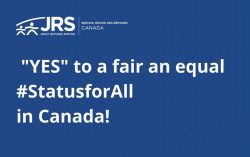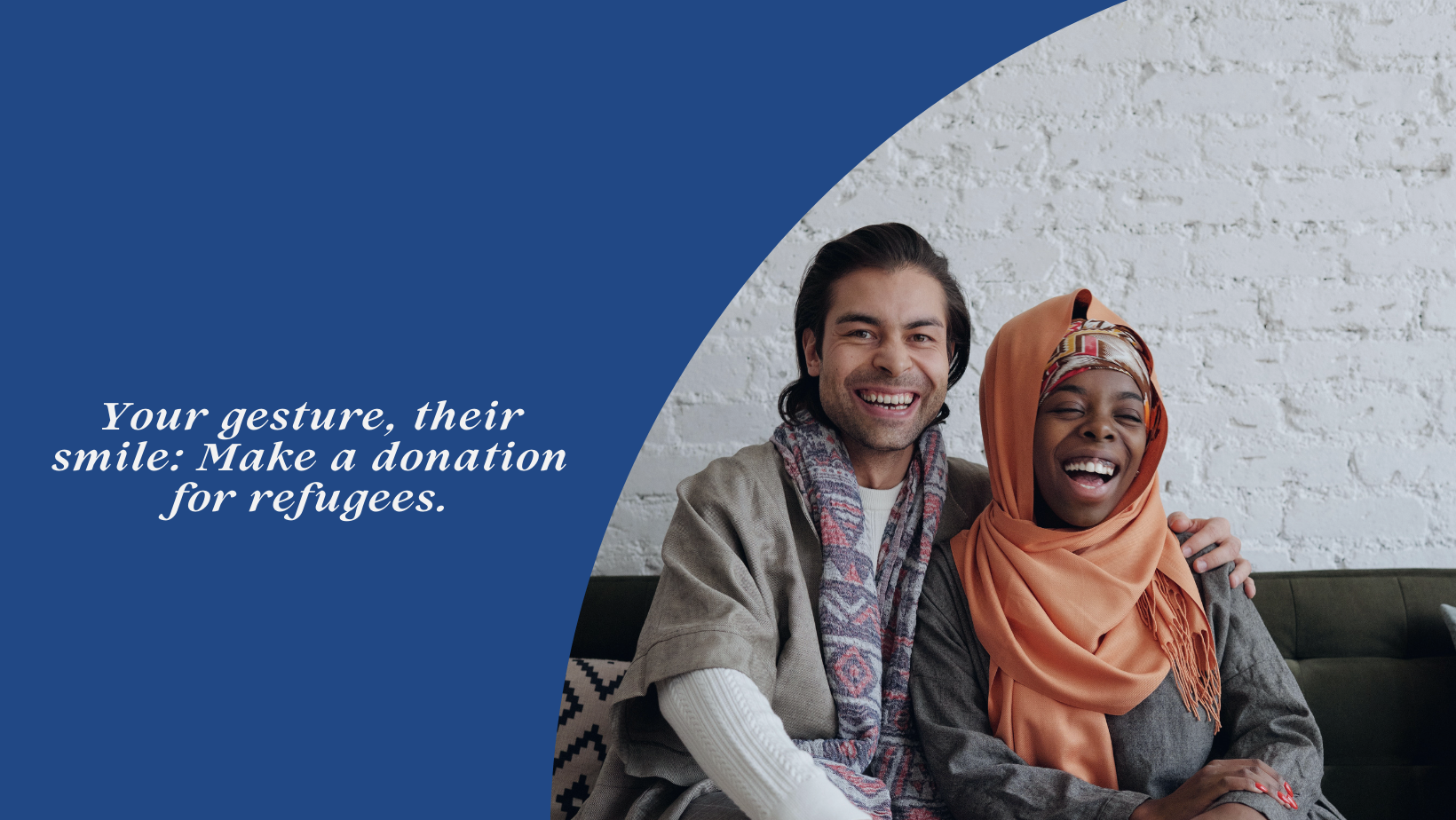Review of JRS’s Actions in the “Status for All” Campaign in Canada
21 February 2026|JRS Canada
 For over a year, migrant rights organizations have been campaigning for the government to grant equal rights to all immigrants. This struggle was sparked by the promise made by the Trudeau government to improve the conditions of temporary workers through a regularization program in December 2021.
For over a year, migrant rights organizations have been campaigning for the government to grant equal rights to all immigrants. This struggle was sparked by the promise made by the Trudeau government to improve the conditions of temporary workers through a regularization program in December 2021.
Following this declaration, protests took place across Canada. Many human rights activists emphasized the need to welcome not only temporary workers but also all individuals in precarious situations or without legal status through this program. The goal is to enable everyone to access permanent residency and live with dignity in Canada. To actively participate in this campaign, named “Status for All,” the JRS (Jesuit Refugee Service) took several initiatives.
September 2022
In a publicly released statement, the JRS welcomed the possibility of a regularization program accessible to temporary workers. However, the director of JRS, Mr. Norbert Piché, expressed the wish that this measure be extended to all individuals without legal status or in precarious situations. Through its director’s voice, JRS urged the provincial government of Quebec to follow the lead of the federal government. Organizations like the CCR (Canadian Council for Refugees) and all member organizations engaged in the fight for migrant rights mobilized to protest. In addition to amplifying calls for mobilization, JRS participated in the march organized by member organizations of the Network for Migrant Rights across Canada.
November 2022
On the occasion of the World Day of Migrants and Refugees, commemorated annually by the Catholic Church, JRS organized a prayer. This prayer, open to all religious denominations, was a moment of reflection for all peoples of the world, particularly in Canada, who are going through difficult times. To further their advocacy, JRS also sent a letter to the Vatican to request the support of the Catholic Church in the struggle to regularize the status of individuals without legal status or in precarious situations in Canada. In a letter dated November 25, 2022, Reverend Brother Fabio Baggio, head of the Vatican’s Migrants and Refugees section, responded to JRS with suggestions, recommendations, and guidelines to help JRS advance its advocacy among local religious communities. On November 29, a letter was also sent to Prime Minister François Legault, asking for his support for the federal regularization program.
December 2022
Based on Vatican recommendations, JRS has been in contact with Alessandra Santopadre, Assistant at the Office of Cultural and Ritual Communities and responsible for the sponsorship program for refugees and asylum seekers in the Diocese of Montreal. With her unwavering help and support, JRS has undertaken various initiatives with the Catholic Church and diverse communities to voice the cause of individuals without legal status and in precarious situations.
January 2023
Between January and March 2023, JRS collaborated with Ian Van Harren, the director of Action Réfugiés Montréal, and Alessandra Santopadre to ask other religious communities to join the advocacy. Alessandra Santopadre met with several bishops to seek their support for the “Status for All” campaign.
April 2023
In April 2023, the JRS launched an online campaign calling on religious communities, parishes, and individuals to join other organizations in writing to the Minister of Immigration in support of an inclusive program accessible to all. The Provincial of the Jesuits, Erik Oland, joined this campaign and also signed the letter that was sent to the Minister.
May 2023
JRS wrote to the Anglican Church of Canada and the Evangelical Lutheran Church of Canada to ask for their support in the fight for migrant rights.
June 2023
In a joint letter, the Anglican Church of Canada and the Evangelical Lutheran Church of Canada also wrote to the Minister of Immigration, Refugees, and Citizenship, Sean Fraser.
Several letters have been sent and numerous efforts continue to be made so that the government agrees to partner with individuals without legal status or in precarious situations in building a fairer and more open world towards strangers.


